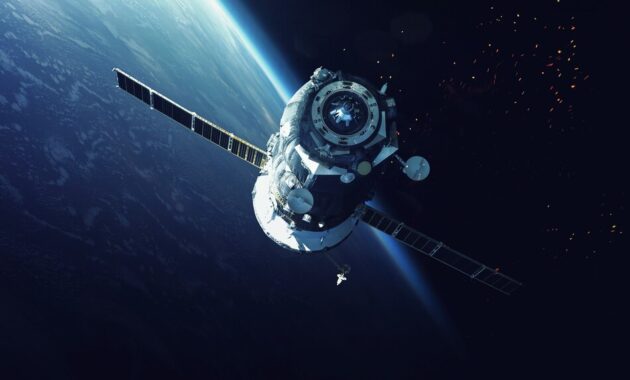Thanks to space technology pioneers, the once mysterious cosmic expanse is now open to explore. In a worldwide competition to conquer space, these 10 pioneering nations push the limits. With their histories and dedication to innovation, everyone contributes to a familiar story that influences space exploration. This investigation unveils a tapestry of scientific wonders, from the iconic triumphs of the US and China to Russia’s historical heritage and the rising stars of Japan, Great Britain, India, Canada, Germany, and France.
United States Of America
A pioneer in space exploration, the US has a rich heritage. NASA leads these revolutionary missions that have fascinated the globe. The US has advanced space exploration from the Apollo moon landings to the complex Skylab space station and the revolutionary Space Shuttle program.
Multinational collaboration on the International Space Station (ISS) significantly contributes. The ISS, a microgravity and space environment research lab, represents worldwide collaboration in exploring the unknown. The Mars Exploration Rovers Opportunity and Curiosity demonstrate the US’s dedication to understanding Mars.
Since February 1958, the US has launched multiple satellites for diverse objectives. Communication, e-intelligence, missile tracking, weather monitoring, and navigation. NASA drives space exploration, creating missions that fascinate the globe and inspire the next generation of space enthusiasts.
China
China has become a global space power with its sights on the cosmos. Chinas space program is ambitious and technologically advanced with the second-largest fleet. Chinas advances like the Tiangong1 space station demonstrate its desire to go beyond Earth.
Shenzhous human mission is crucial to Chinas space voyage showcasing crewed space exploration capability. Chinese Lunar Exploration Programme CLEP missions like Change4s moon landings demonstrate Chinas commitment to lunar exploration.
The Chinese National Space Administration plans and develops national space initiatives. The government-owned China Aerospace Technology and Science Corporation CASC designs and produces launch vehicles satellites and commercial launch services.
Russia
Russia is a space exploration superpower with a 1957 heritage. The initial artificial satellite was Sputnik 1 which the Soviet Union launched. Russia has the third-largest fleet of telecommunications meteorological and monitoring satellites.
Russia’s space exploration legacy includes the Soyuz, Salyut 1, and Lunokhod 1. Roskosmos manages civilian space operations, whereas VKS launches military satellites and controls flight. Russia has conducted successful missions that have deepened our knowledge of the universe. Russia pioneers space exploration and shapes interstellar aspirations.
Japan
Since its February 1970 satellite launch, Japan has progressively increased its space capabilities, joining the spacefaring countries. Various telecommunication, weather, earth observation, and astronomy observation satellites show the nation’s commitment to space exploration.
The (KIBO)-ISS, HTV5, and H-II launch vehicles demonstrate Japan’s worldwide space participation. The Japan Aerospace Exploration Agency (JAXA) drives space research and development, advancing space technologies.
Japanese space successes extend beyond its boundaries, with active involvement in joint missions and a rising reputation as a trusted partner in global space projects. As Japan advances space exploration, it secures its role in cosmic discoveries.
Great Britain
Great Britain, a developing space power, has advanced since the 1962 launch of Ariel 1. The UK’s satellites for communication, Earth observation, and scientific discovery serve civilian and military purposes. As a significant contributor to the ESA, the UK shapes Europe’s space efforts.
UK funding and participation in BepiColombo, Euclid, and the ExoMars Rover demonstrate its commitment to space exploration. UKSA implements the civil space program and manages space programs. Great Britain’s investment in space science and exploration solidifies its position as a growing power in the hunt for cosmic secrets.
India
Since its 1975 space mission, India has become a space technology powerhouse. Indian satellite launches have exceeded 80 under the government-owned Indian Space Research Organization (ISRO). INSAT, GSAT, and IRNSS are communication, earth observation, and navigation satellites.
TES and Cartosat, civilian-military satellites, demonstrate India’s space adaptability. The $75 million Mars Orbiter project (MOM) was a milestone. NASA spent much more on MAVEN Mars. India’s capacity to conduct cost-effective space missions shows its budgetary responsibility and dedication to space research.
Canada
Since 1962, Canada has steadily traversed space, contributing to space exploration. RADARSAT, SCISAT, and ANIK are earth observation and communication satellites managed by the Canadian Space Agency (CSA).
Canada contributes to international space programs while requiring its launch system. Canada uses satellite launches alongside the US, India, and Russia to improve global knowledge of the cosmos. Canada’s devotion to scientific discoveries and international cooperation makes it a key participant in space exploration.
Germany
After launching the Azur satellite in 1969 Germany pioneered space research. The German Aerospace Center DLR manages the countrys space program with the ESA and EUMETSAT. The Cassini-Huygens mission to Saturn and its moons Columbus the European space laboratory and the Dawn trip to Vesta and Ceres demonstrate Germanys dedication to cutting-edge space exploration. The DLRs support of the German space industry supports worldwide space programs strategic objectives highlighting Germanys creative leadership in space research.
France
France leads civilian and military space initiatives and is a worldwide power. The state-owned Centre National dEtudes Spatiales CNES coordinates space policy and works with companies and scientists to undertake varied space activities. France has earth observation imaging electronic signals intelligence and civilian and military communications satellites in orbit.
France supports the European Space Agency ESA via missions and space centers like Toulouse and Guiana. Frances diversified approach to space programs balances exploration with strategic concerns making it a key role in space explorations future.
Conclusion
These key countries collaboration and competitiveness demonstrate the global space races dynamic character. Humanitys quest to understand the universe continues to push boundaries as each nation uses its talents and resources. Once a remote frontier the universe is a familiar battleground where countries compete and redefine exploration. These countries pioneering efforts inspire future generations to aim for the heavens and leave their imprint in space.


